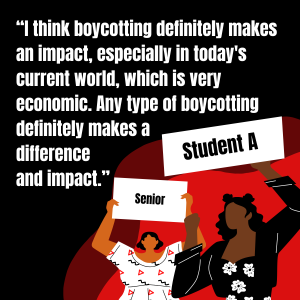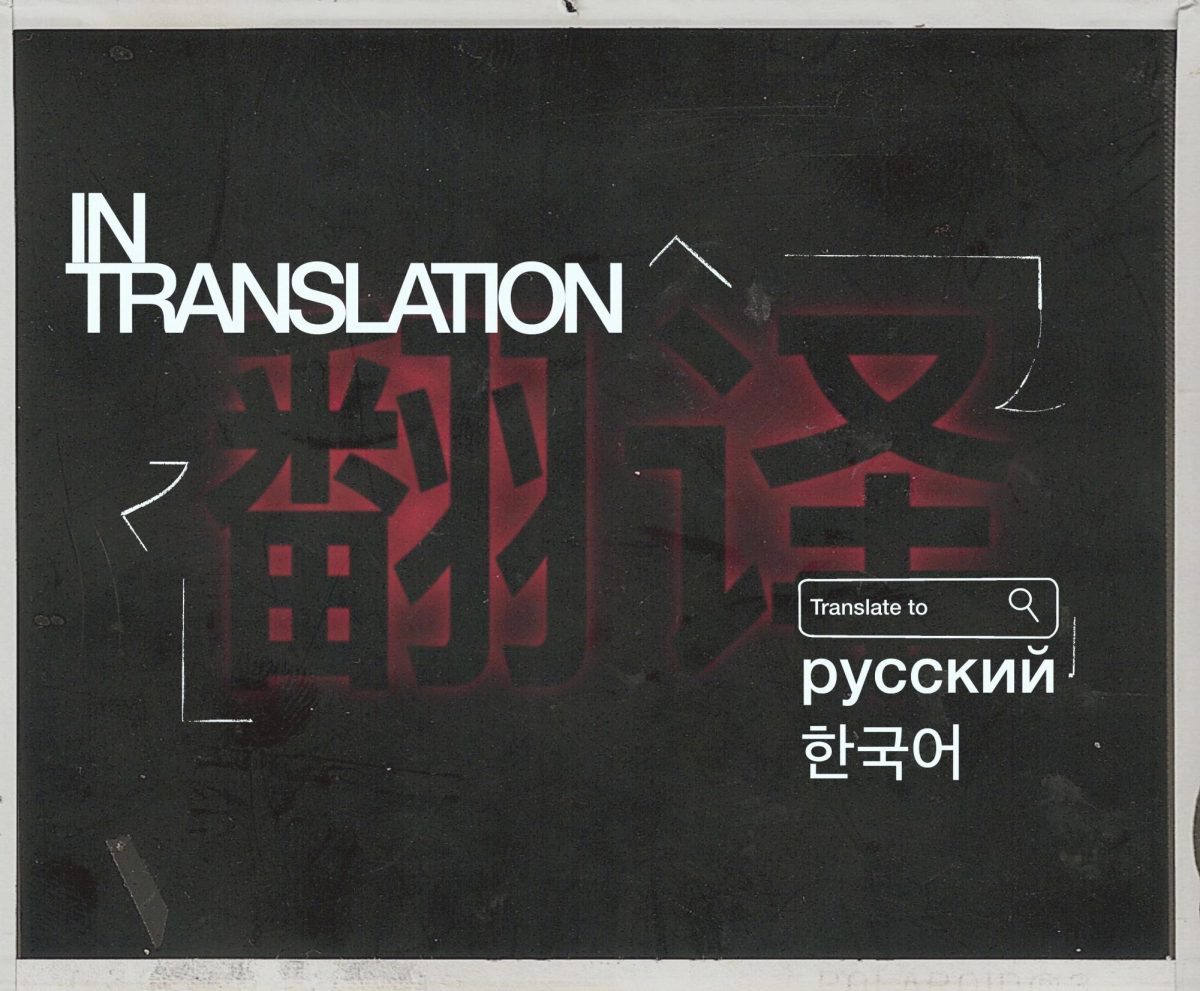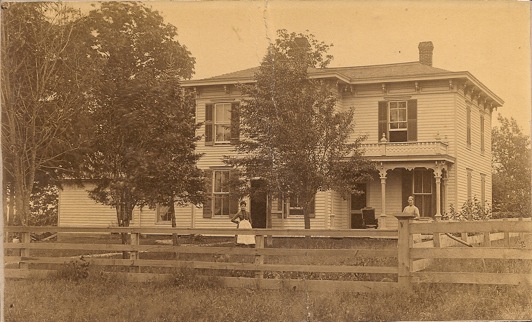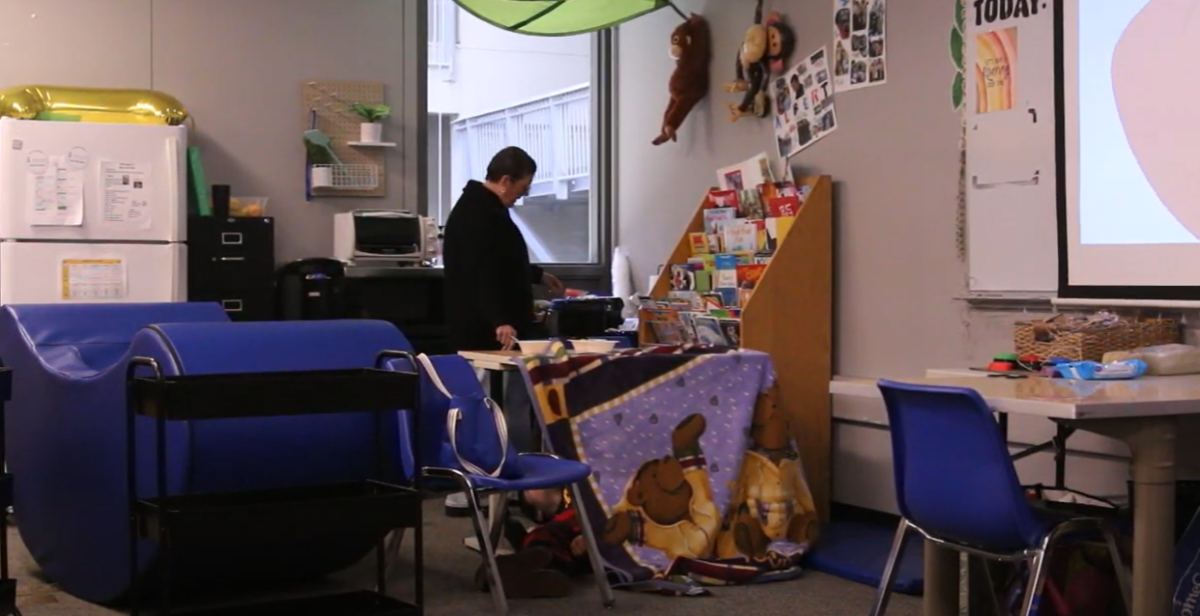Student A will remain anonymous due to privacy concerns.
As junior Ali Malik scrolled through a news story on his phone, his eyes locked on a specific article and his thumb slowly swiped against the screen. As he scrolled through the text, horrific images of people in distress caught his attention.
“I was looking at an article from BBC, and it was describing the concentration camps for Uyghurs,” Malik said. “You saw images of people being loaded on buses like prisoners with their hands tied, just because they’re a different ethnicity. I think that really made me disgusted. It inspired me to start boycotting.”
Malik is mainly boycotting Nike due to its use of unfair labor practices on Uyghurs in China. Even wearing Nike products makes him feel extremely uncomfortable, as he associates it with the exploitation of Uyghur workers.
“My ultimate goal is that collective boycotting would lead to companies changing their practices,” Malik said. “I think it starts off with one company, and other companies that are using exploited labor will also have to innovate.”
Economics teacher Pete Pelkey agrees with Malik that boycotting can lead to a company changing. Pelkey believes that students are important consumers, with their large amount of discretionary income, and can strongly influence companies. However, he adds that students often struggle to maintain their boycotts long enough for effects to be seen.
“You could potentially wipe out a company by creating an organized boycott,” Pelkey said. “As soon as students organize and say, ‘We’re not going to go to a place,’ the loss of revenue could be so fast and so powerful, that all of a sudden they’re in debt.”
Pelkey believes this loss in income leads to companies changing their stances and operations. Anonymous senior Student A agrees, leading to them boycotting Starbucks and McDonald’s, among other companies. Pro-Palestinian boycotters have been boycotting Starbucks after it sued the Starbucks Worker’s Union for tweeting in support of Palestine. McDonald’s has also been boycotted after reports that franchise owners in Israel would be donating free food to Israeli hospitals and the Israel Defense Force. Ultimately, Student A hopes that their boycotts will lead to a decrease in profits for both McDonald’s and Starbucks, causing them to change.
“I think boycotting definitely makes an impact, especially in today’s current world, which is very economic and a lot of our policies are economic or capitalistic-based,” Student A said. “Any type of boycotting definitely makes a difference and impact.”

According to Malik, boycotting involves not only refraining from buying products but also raising awareness. Malik tells his friends about his Nike boycott and the reasoning behind it whenever an opportunity in conversation arises.
Likewise, Pelkey also spreads awareness about his personal boycott of the Homestead Rd. Peet’s Coffee after the manager was racist to someone he knew. Pelkey has not been going to that particular Peet’s Coffee for years.
“I let everybody know that Peet’s Coffee on Homestead did that to that lady,” Pelkey said. “If people do that, you let people know and people stop going there. I hope it goes bankrupt. I don’t care. That was uncalled for — that was racist.”
Student A also spreads awareness by posting on social media and educating those around them. They have experienced challenges with supporting their cause while living in the U.S., a country that supports Israel. However, they continue to boycott and defend their opinion.
“I think that individuals alone can’t make a difference in boycotting,” Student A said. “But because I’m adding to the cause and supporting it, it does make a difference.”
Because of this, Student A makes sure they’re properly educated on topics and researching credible sources. Malik agrees, and also encourages all students to be educated on the products they purchase.
“When you’re buying a product, understand that a company represents more than the product and services, but also represents its values,” Malik said. “If you realize that this product is made with literal slave labor, then there are other options to try. The main thing is to do research before you buy.”









